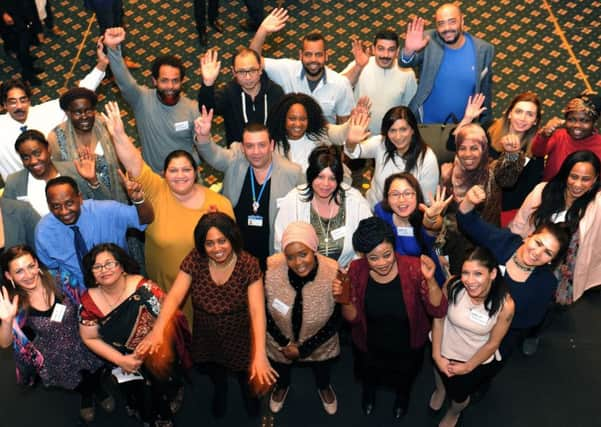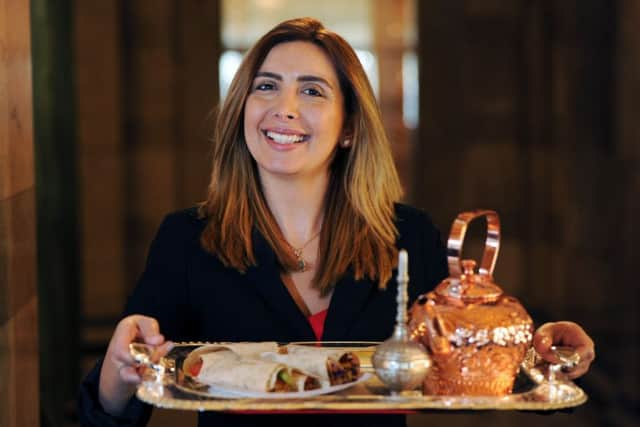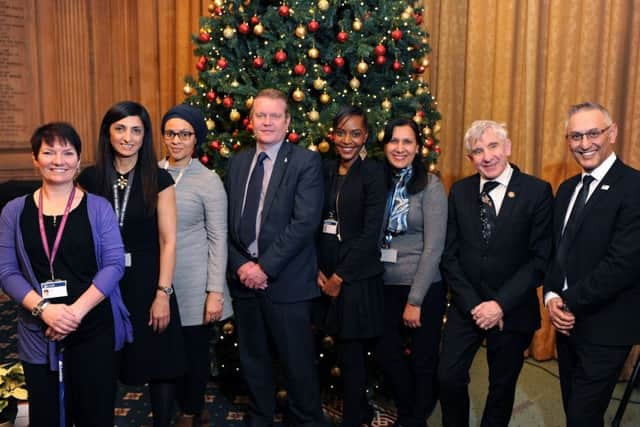Migrants have helped shape our beloved Leeds for 200 years - let's celebrate that fact


The summit at Leeds Civic Hall was organised by Leeds City Council’s Migrant Access Project (MAP) to help celebrate grass roots community work, and discuss ideas for the future.
Opening the event, councillor James Lewis, deputy leader of the council, spoke of his pride that Leeds is and always has been “a welcoming and compassionate city”.
Advertisement
Hide AdAdvertisement
Hide Ad“Leeds, as a city of sanctuary, has a long history of welcoming migrants from around the world, and those migrant communities have formed part of the fabric of our city,” he said.


“We received Irish workers fleeing the great potato famine of 1845 to 1850, including some of my ancestors.
“We welcomed Russian and East European Jews arriving in the 1880s, with more fleeing the Pogroms of the early 1900s.
“The second world war produced new waves of migrants, including Poles, Latvians, Lithuanians, Hungarians, Serbians and Italians.
Advertisement
Hide AdAdvertisement
Hide Ad“In the post war era, we saw migrants in Leeds arriving from the former colonies, places like India, Pakistan, Bangladesh, the Caribbean and Hong Kong. And in the 1970s, Leeds became home to the dependents of those newly settled Commonwealth migrants.


“Since enlargement of the European Union, Eastern Europeans including a large Polish community, Slovakian, Czech Republic and Romanians have come to Leeds, and more recently we have welcomed refugees from Syria to Leeds as well.
“Migration is important to the city.”
Coun Lewis said one of Leeds’s slogans was that “we want to have a strong economy in a compassionate city” - and the city’s diversity plays a huge part in its success.
“People who come here, work hard, set up businesses to provide for their families and jobs for people in the city have always been a big part of Leeds,” he said.


Advertisement
Hide AdAdvertisement
Hide Ad“Some of the big employers in Leeds over the last 100 or 200 years have been established by people who have come to this country as migrants but have ended up providing tens of thousands of jobs.
“We also want to be a compassionate city and that is why we are developing our migration programme, that will benefit everybody in Leeds.”
He paid tribute to the work of the “fantastic” grass roots organisations working with migrant communities to help them settle and achieve the best they can as active citizens.
Among several passionate and emotional speeches at the summit was one from Sawsan Zaza, who was born in Damascus, Syria.


Advertisement
Hide AdAdvertisement
Hide AdShe now devotes much of her time to helping refugees from her homeland who are fleeing the civil war.
“I know how difficult it can be to move somewhere completely new, not by choice, leaving family and all your memories behind, and the worst thing not knowing when you will be back,” she said.
“But I have realised that to feel at home, I have to stop making comparisons.
“How can you make your city your home?
“For me, I think it’s when you feel valued, when you feel safe and you have a good opportunity to progress in life.
“When a door is opened for you, and when your kids can access every opportunity out there, that’s what home is for me, and that’s what makes Leeds home.”